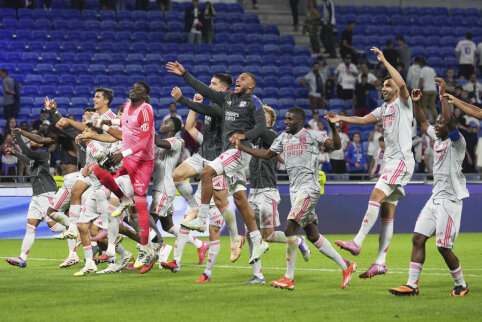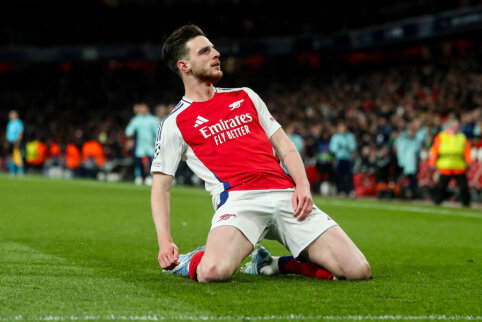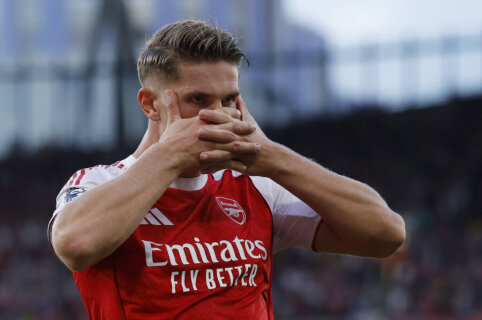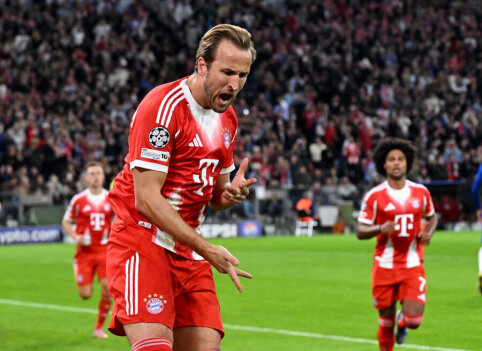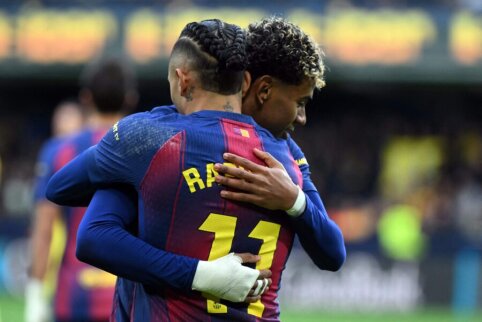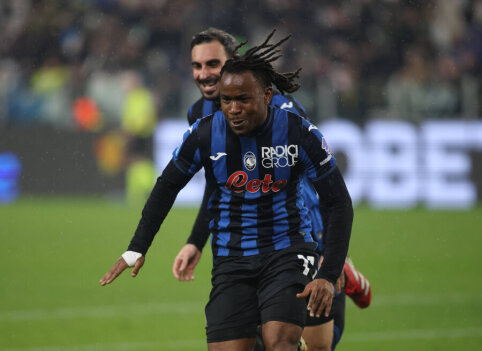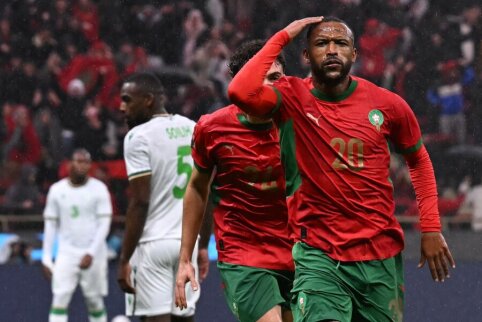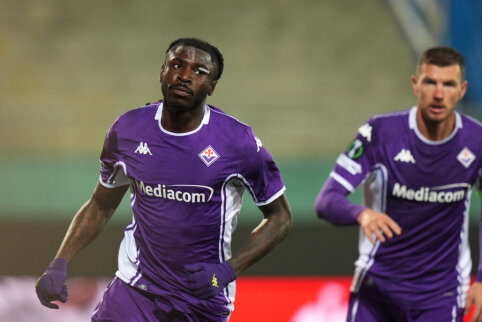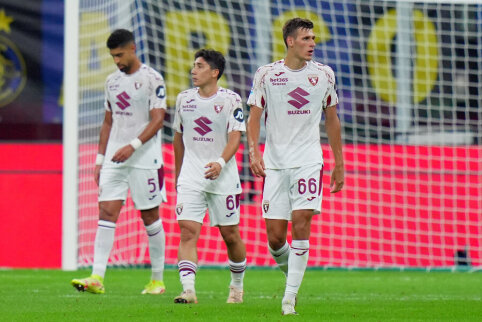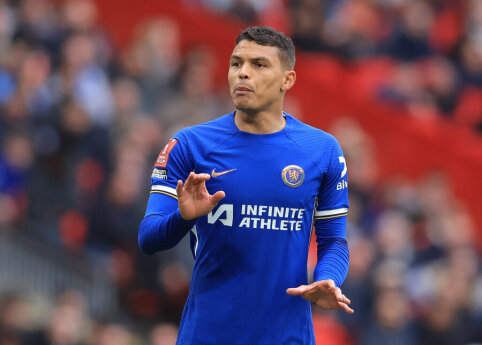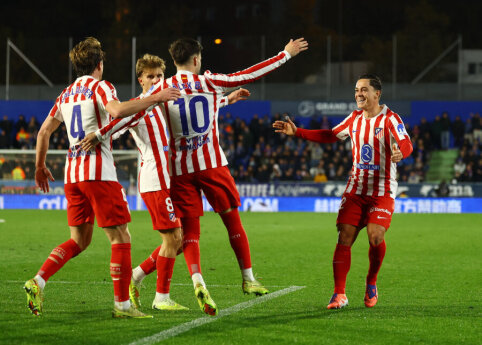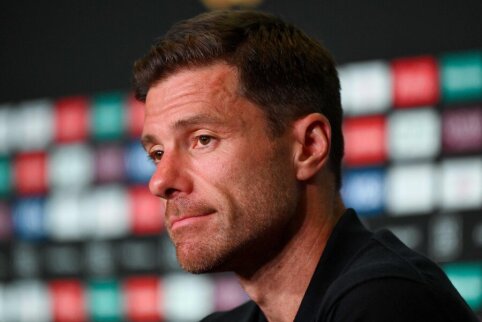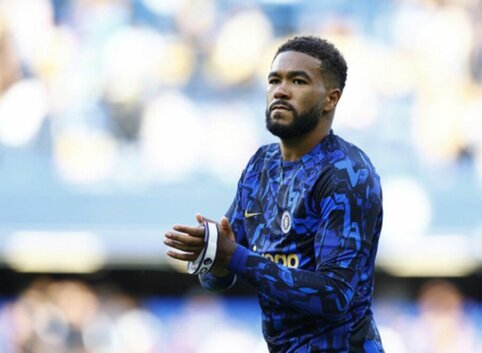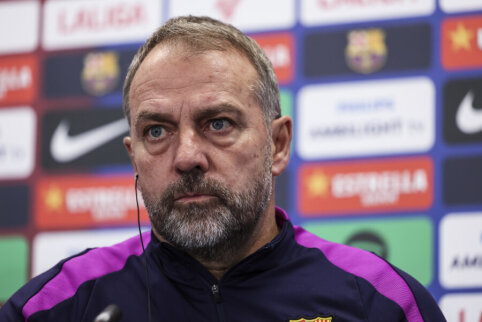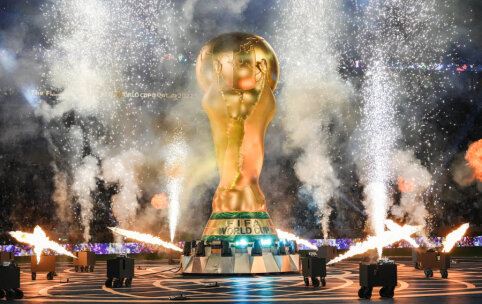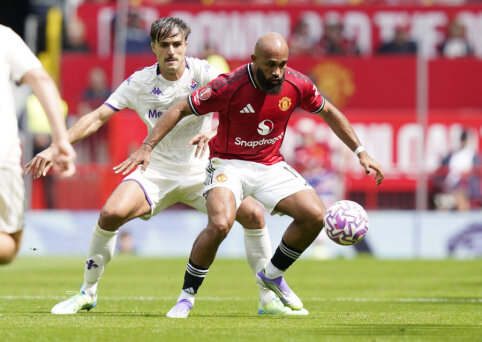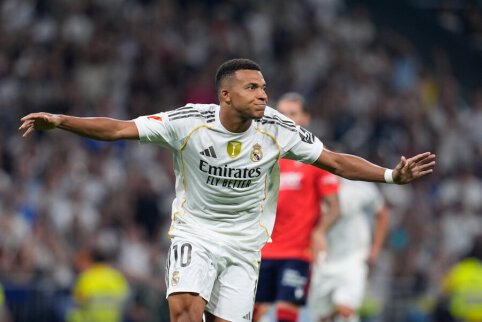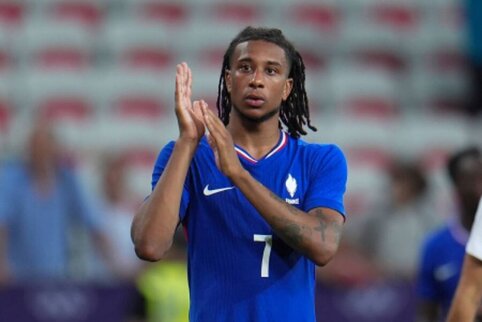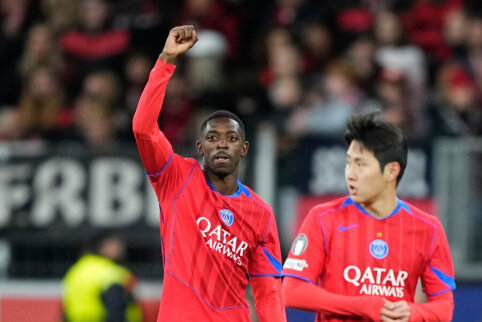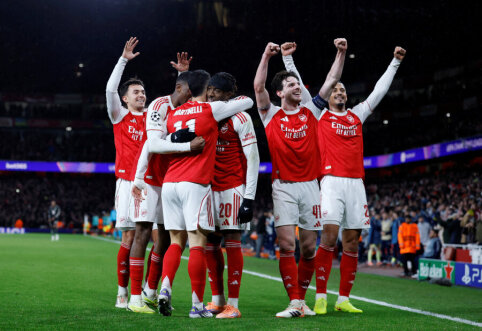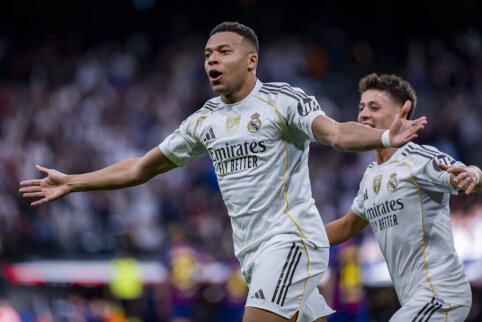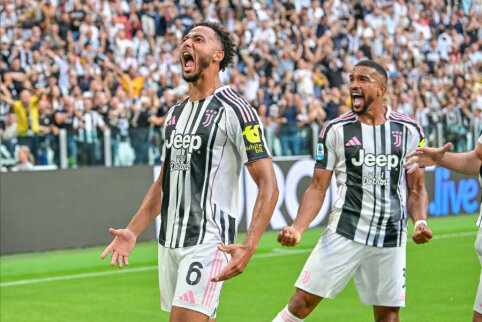 © EuroFootball.com
© EuroFootball.com
During the World Championship, in the "Tribunes" section of the website, visitor Giedrius suggests reading an article about the greatest footballers of all time who never fulfilled their dream of playing in the world championships even once.
This time we present Part I of the article.
Remember that you can submit your articles to the address [email protected]
Every footballer's dream is to represent their country at the World Cup at least once. Various factors can prevent this dream from coming true. Even the most talented footballers cannot single-handedly lead their national teams to the prestigious tournament, if their teammates are average or semi-professional players. Political events, conflicts with coaches, between countries or football federations, injuries, and many other factors can also prevent this dream from being realized.
While compiling this list, player achievements in club football, opinions of foreign specialists, and personal opinions were taken into account, so the listed players do not necessarily coincide with the opinions of all readers. The list does not include players who were named to the national teams but did not appear on the field during the World Cup.
Here are thirteen of the best footballers, in my opinion and not only, who have never played in the World Cup:
13. Anibal Ciocca (The Prince) - rightfully carried the nickname "prince," he stood out not only for his graceful playing on the field but also for his excellent acting skills. In the 1930s and 1940s, in more than one team at the same time, it was possible to see up to 5 forwards playing on the field together. Along with Severino Varela, Roberto Porta, and other players of the Uruguayan national team at the time, he won two "Copa America" trophies (1935 and 1942). He spent his entire career with the Uruguayan team "Nacional," with which he became the Uruguayan champion 5 times (1933, 1934, 1939, 1943, and 1946). He also won the "Copa Libertadores" once with the club (1942).
Why did he not participate in the World Cup?
The Uruguayan Football Federation refused to send their team to the 1938 Championship due to the long journey to France, where the tournament was being held. If not for this decision, Uruguay had a good chance to win their second title after the triumph in 1930. Anibal Ciocca had the opportunity to participate only in one World Cup, in 1938, but because of the federation's decision, Uruguay missed a big chance to win.
12. Jose Manuel Moreno, a member of the famous Argentinian football force "La Maquina" (the machine). Along with Adolfo Pedernera, Angel Labruna, and other Argentinian players at the time, they solved all their problems by scoring more than they could miss. Relying on this tactic, led by Moreno, Argentines won 3 "Copa America" titles in the 1940s. With "La Maquina," mainly associated with the dominant team "River Plate" in Argentinian football, Moreno won 5 Argentinian League championships (1936, 1937, 1941, 1942, 1945). He holds the world record, having won national championships with clubs from four different countries (besides Argentina, also Mexico, Chile, and Colombia). He is still the third most prolific player of all time in the "Copa America" tournament with 13 goals.
Why did he not participate in the World Cup?
In 1938, the Argentinian Football Federation refused to travel to France for the World Cup because the promised host name was later withdrawn. When Moreno was in his prime, in 1942 and 1946, no Championships were held because of World War II. Even though in 1950 Argentina was still boycotting FIFA tournaments, he couldn't play in the World Cup.
11. Alberto Spencer, known as "Cabeza Magica" (Magic Head), was one of the best South American forwards of the 1960s. The son of Jamaican and Anglo parents was born in Ecuador, where football was still developing, and hopes of the country participating in the World Cup seemed unlikely. Spencer did not achieve great heights with the national team, as he was the only high-level player in the team. He earned the title of the most prolific player in history in the "Copa Libertadores" with 54 goals. With his club, he won the cup three times (1960, 1961, 1966). As proof that he was not just a star in South America, his two excellent performances in the "World Intercontinental Cup" stand out, where he led his team to victory over Lisbon's Benfica and Madrid's Real.
Why did he not participate in the World Cup?
The main obstacle for him was the incompetence of the Ecuadorian national team. Besides Spencer, there were no other high-level players in the team, so he only played in 11 matches and scored 4 goals. During the qualifiers in both 1962 and 1966, the team did not make it to the final tournament.
10. Mark Hughes, the legendary forward of Manchester United and the Wales national team. He made his debut in the main Manchester United team in 1983 and scored a goal in his first match. He helped the club win the FA Cup in 1985, was then sold to FC Barcelona, and was loaned to Bayern Munich the following season. However, he showed his best form upon returning to Manchester. Playing for the club again, he helped them win two more FA Cups, two Premier League titles, one League Cup, and one Cup Winners' Cup. In 1995, he moved to Chelsea in London and won another FA Cup and Cup Winners' Cup. He played for several other English clubs before retiring at the age of 39. Immediately after retiring from active football, he became the head coach of the Wales national team. He scored 16 goals in 72 matches for Wales.
Why did he not participate in the World Cup?
It cannot be said that the Wales team lacked high-level footballers, but during crucial matches, the team often faltered. The core of the national team was made up of players from the highest English league, but there was never a good team atmosphere, and conflicts between players and coaches were common, affecting the results. Mark Hughes could have participated in four World Cups (1986, 1990, 1994, and 1998), but Wales did not qualify each time.
9. Ian Rush, the football legend of Liverpool and Wales. Rush began his career at Chester City, where he scored 14 goals in his first season and caught the eye of Liverpool scouts. Rush achieved his greatest successes as a player with Liverpool. Rush was a typical striker of that time, playing well with his head, responding to every long pass from his teammates, and fighting relentlessly. Liverpool was one of the strongest clubs not only in England but also in Europe at that time. Along with the legendary goalkeeper from Zimbabwe, Bruce Grobbelaar (who also never played in the World Cup), I. Rush won 5 English league championships, 5 league cups, 3 FA Cups, and the 1984 European Cup. In total, he scored 229 goals in 469 matches for Liverpool. He briefly left the club for Juventus but returned after not fitting in there. He ended his career playing for several high and lower-level English teams.
Why did he not participate in the World Cup?
In his 51 appearances for the national team, he scored 11 goals. His international career began in 1980, and he played for Wales until 1996. During the qualifiers for the 1982 World Cup in Spain, Wales finished third in the European group, losing to Czechoslovakia on goal difference due to less impressive performances upfront against Czechoslovakia was Wales' closest chance of getting to the World Cup.
8. Ryan Giggs, one of the greatest wing-backs of all time. With his fantastic speed and dribbling, unyielding and never-give-up attitude, Ryan Giggs was a force to be reckoned with, both at Manchester United and for the Wales national team. However, unfortunately, Giggs will be 36 years old during the 2010 World Cup, casting doubt on whether he will even continue playing football. Therefore, the dream of this excellent wing-back to participate in a World Cup seems unlikely to come true. He spent his entire career playing for Manchester United and achieved everything possible in club tournaments: 8 English league titles, 2 league cups, 4 FA cups, 1 UEFA Champions League (1999), and 1 Intercontinental Cup.
Why did he not participate in the World Cup?
In his 51 appearances for the national team, he scored 11 goals. However, he did not shine in the national team as much as he did in the club, and he was often criticized for refusing to play friendly matches for the Wales national team. Giggs started his international career in 1991. During the qualifiers for the 1998 World Cup, Giggs scored 2 goals, but Wales were surprisingly overtaken by Scotland in the group. His best chance of playing in the World Cup came in 2002 when he scored 3 goals during qualification, but the team performed poorly, finishing fifth in the group.
7. Abedi Pele. No, it's not the legendary Brazilian Pele, and this player was not born in Brazil. However, the World Championships lost much of their appeal, as football fans from all over the world never had the opportunity to see this fantastic trickster from Ghana perform. Often referred to as the best African footballer of all time, Abedi Pele failed to lead his national team to the World Cup but showcased his talent in the top European clubs of the time. He became best known as a first-class player in Europe when he joined the French club Marseille in 1987. With Marseille, he reached the UEFA Champions League final in 1991 and scored 2 goals. In a sensational UEFA Champions League final in 1993, Pele and his teammates defeated the favorite Milan club 1-0 and won the European Cup. Pele received the Best Player of the tournament award, scoring three goals throughout the tournament. In 1991, 1992, and 1993 he was recognized as the best African player of the year. He won 4 French championships with the Marseille club. He played for teams in Qatar, Benin, France, Italy, Germany, and the United Arab Emirates during his career. His greatest achievements with the Ghana national team were the first place in 1982 and the second place in 1992 in the African Cup of Nations. He was named the best player of the 1992 tournament and scored 3 goals, while Ghana lost in the final to the Ivory Coast national team after an 11-meter penalty shootout, during which Pele could not play due to two yellow cards in the semifinals.
Why did he not participate in the World Cup?
In his 67 appearances for the national team, Abedi Pele scored 33 goals. Although he played alongside other well-established European forwards like Anthony Yeboah, other players on the team were of much lower quality. Ghana failed to reach the World Cup during the qualifiers in both 1962 and 1966. Their last chance came in 1994, but again failed to qualify. Abedi Pele continued to excel club, especially during his time at Marseille.
6. Laszlo Kubala. Born in Hungary but managing to play for Czechoslovakia and Spain, Kubala is often referred to as the greatest player of the famous Barcelona team. Kubala's father was a Polish-Slovak, and his mother was Hungarian-Slovak. He was born in the former Czechoslovakia and considered himself a "Citizen of the World". Kubala started his career with the "Ganz" team, later moved to "Ferencvaros," and left Hungary to serve in the military, ending up in Czechoslovakia with the "Bratislava" team, where he played 6 matches and scored 4 goals for the Czechoslovakian national team. However, to avoid military service, he returned to Hungary, where he played for "Vasas," with whom he played three matches for the Hungarian national team. With the political situation deteriorating, he escaped to Italy. There, along with other Hungarian refugees, he played friendly matches against various teams. One of those matches was against the Spanish national team, which was preparing for the 1950 World Cup. The Barcelona representatives noticed him in that match, and in June 1950, he joined this famous club. He played for them until 1963, playing 19 matches for the Spanish national team. With "Barca," he won the Spanish championship four times. Later, he coached the Spain national team, but not very successfully. He recommended inviting more Hungarians to Barcelona, such as Koscis, Czibor, and others.
Why did he not participate in the World Cup?
Political circumstances prevented Kubala from participating in the World Cup. During his best years, Hungary was one of the strongest teams in the world, but he fled the country to avoid military service and in 1950, was already living in Italy. Had he returned to Hungary, he would likely have been imprisoned. In 1958, after receiving citizenship, Kubala played for the Spanish national team in the qualifiers, scoring 4 goals. However, the Spanish were sensationally beaten by Scotland in the qualifiers.
